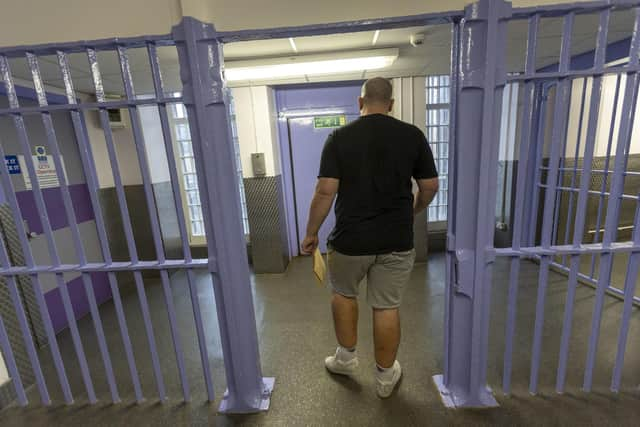Covid court case backlog means prisoners are serving entire sentence on remand then being released with no money and nowhere to go – Karyn McCluskey
Some events never really disappear from our newspapers, so great an impact they have on our society and country. Wars, Covid, terrorist attacks and terrible crimes are all remembered and leave a legacy that often changes us for the better.
The Covid inquiries are ongoing just now and families of those who died are being called to relive the terrible deaths of loved ones. Everyone recognises the after-effects on the health service but, in the justice system, the impacts are also felt acutely and the phrase ‘a burning platform’ comes to mind.
Advertisement
Hide AdAdvertisement
Hide AdIt's difficult to know where to start when highlighting the effects. Court cases delayed, in some cases, for years. Complainers, witnesses and the accused caught in a version of purgatory, unable to move on with their lives with the spectre of a court case at some point in the future, despite the best efforts of our courts and defence lawyers to speed up the system.
Processes in criminal justice were disrupted, time limits for cases were extended, the remand population increased exponentially as people spent time held in prison waiting for cases to come to court. The prison population is edging again towards 8,000 and the system is creaking. As of Monday, there were 7,725 in custody (5,503 sentenced, 1,870 untried and 353 awaiting sentence). A staggering 28.8 per cent of the prison population were on remand, compared to 19 per cent only five years ago. Justice delayed feels like justice denied to those in the system, albeit temporarily. Lives put on hold.
Generally, we try to provide services to those leaving prison after serving a sentence – a liberation grant of £77, hopefully a place to stay, a prescription for any medication needed and even a mentor to meet them at the gate. In this new world, people are being released at court, after spending whatever sentence they would have received wholly on remand.
On remand, you have little or no access to rehabilitation programmes and you receive no liberation grant – because you haven’t been sentenced. You could be released at court with no idea where you are going to stay that evening, and no money to access food or services.
It is a cliff, and people are falling off it. In pre-Covid years, the transition from prison to community was far from perfect. We deal with often complicated people who need a myriad of services to survive and thrive without coming into the justice system. Now, we have incredibly short windows in which to provide support, homes, medication and much more. And it’s a mighty ask.


The charity sector is more fleet of foot than the statutory sector, it responds to change and people’s needs more easily and can innovate within a system. But this is not a low-cost or no-cost endeavour, and we will need to fund this Covid consequential.
I can hear intakes of breath even now, as I speak about money to support those leaving remand but make no mistake – we pay now or pay later. Those who fall off that cliff end up back in crime, sleeping rough, back in the grips of addiction and inevitably, for it is inevitable, back in the justice system and this serves no one.
Karyn McCluskey is chief executive of Community Justice Scotland
